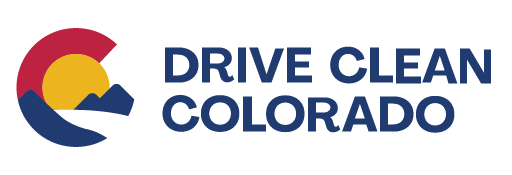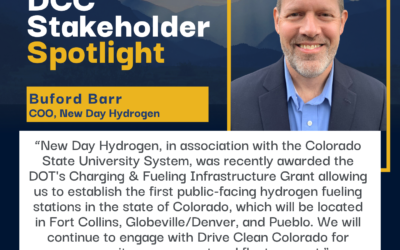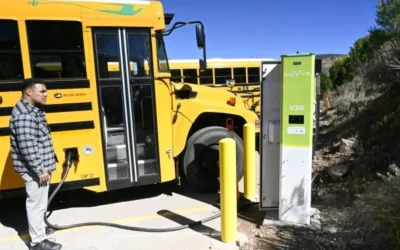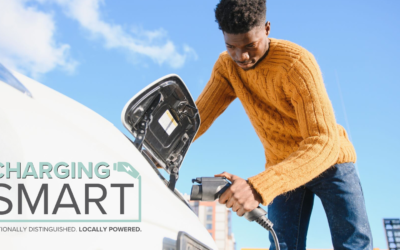We are so excited to have Solar United Neighbors (SUN) as one of our members at Denver Metro Clean Cities! SUN is a national nonprofit and community of people working to build a new energy system focused on rooftop solar. The organization has helped hundreds of people go solar in Colorado and is committed to helping communities take control of their energy. We spoke with Bryce Carter, Colorado Program Director of SUN, to get some insight into their mission and their work in Colorado. Keep reading to learn about SUN’s co-ops across the state, their new involvement in policy, and a fascinating project they did in Mesa County.
Organization: Solar United Neighbors (SUN) 
Location: Washington, DC
*Note: The following answers have been summarized from an interview with Bryce Carter from SUN
Solar United Neighbors (SUN) is a nationally recognized nonprofit, but how is your work helping advance clean energy in Colorado?
Our main focus is to help people go solar, come together, and fight for their energy rights. As a vendor neutral nonprofit, we help facilitate group buys (or solar co-ops as we call them) for people to learn what going solar means for them. We also provide support in terms of education and help streamline the process of going solar to simplify the transition for our members. In Colorado, in the last two years, we’ve been able to launch and help around 1,000 people join SUN as members and we’re rapidly approaching 250 of them that have signed a contract and gone solar – these are families and businesses alike from the western slope to the front range. Of the 243 projects we’ve done, we have about 1.7 megawatts of solar power amounting to about $5.3 million in solar investment which will save those consumers over $7 million over 25 years.

Bryce, his wife Katie and their dog Molly tabling at the Fort Collins Earth Day fair, 2019
DMCC works to promote clean air through alternative fuel transportation. How does this align with SUN’s mission?
When we look at pollution and how to reduce it, solar is just one piece of the puzzle. We understand that transportation electrification is a huge part of reducing emissions, and based on the EPA’s Greenhouse Gas equivalency Calculator, the solar impact we’ve made so far is equivalent to taking 420 passenger vehicles off the road every year. As we look at making a just energy transition and deciding how to address the impacts of climate change, we need to understand that the home has essentially become its own powerplant. There are so many different elements of a home that can be transitioned to electric and used to help lower our carbon footprint. Right now, we have the technology to be able to produce electricity (and transportation fuel) at our property and reap the benefits while offsetting fossil fuel consumption. Plus, electrifying energy makes homes safer because of the reduced exposure to carbon emissions from things like furnaces. In terms of alternative fuels, transportation electrification is where we’re headed and we’re seeing many major brands moving towards this technology. I think in the next five years we’re going to see the idea of switching your car and home to electric become the norm, especially with many municipalities like Boulder and Denver looking at how to incentivize and support this transition.
Looking at your website, you have a lot of success stories across the U.S. What has been your favorite from Colorado?
One of my favorites is a volunteer and community member out of Mesa County, Wendy Metzger, who has installed one of the largest solar systems that we’ve helped facilitate. She owns an aquaponic farm, which is a facility that grows fish and plants together, where she grows tilapia in tanks whose waste is pumped through and used as food for the plants. The entire operation is powered by solar as a result of the co-op and has been an incredible project for SUN to be a part of. There are many other great stories we have from our members, too many to share here, but it has taken a lot of engagement and volunteering to get us to this point. As a nonprofit, our local relationships and outreach in communities are extremely important to the success of each of our solar co-ops – we’ve had 9 launches across the state so far and are looking forward to increasing that number. We are so thankful for people like Wendy and organizations like DMCC that help us get the word out to bring awareness to these opportunities and allow us to build our impact.
How do you hope your engagement with DMCC will help support SUN’s efforts?
As we look at electrification of the home, not only do we facilitate going solar, we also support folks that are looking to have an electric vehicle charger installed in their home. Since there’s already going to be an electrician on site, why not look at including a charger as well? Household electrification interrelates with alternative transportation and the bigger picture of how to address the climate crisis, especially with the number of people charging at home growing. The most important step is getting the word out to the community and providing educational opportunities on electrification technology and accessibility. As we move out of Covid I would love to collaborate with DMCC on in-person discussions and panels to engage with our members that have gone solar and help them understand what their impact means to the broader ecosystem. The work that you all are doing really highlights what collaboration can accomplish and I hope we can share in that success as our relationship grows.
Are there any current projects you’re working on that you would like to share?
Solar co-ops are our bread and butter. Right now, we have our Colorado Springs co-op that is open for membership and signup if anyone in the area is interested in learning more about it. It’s free to join and there’s no obligation to switch to solar, so people can just get an idea of what going solar would mean for them. Beyond that, we are moving forward on a collaboration with Denver where we will be working together over the next several years on solar co-ops in the area and are continuing to figure out where and how we can make the most impact on the western slope both to support the Mesa County co-op we had last year and launch a second one. Our work in Yampa Valley is also taking off – we have been engaged with a solar co-op process there and are starting dialogue about what a just energy transition looks like and how solar fits into that.

This Yampa Valley family went solar!
In addition to our education outreach work, we also engaged in policy this year for the first time at the Colorado House of Representatives and have supported several bills. We couldn’t move it forward this year, but next year we’re looking forward to passing Pay As You Save legislation, which would expand accessibility for solar as well as other smart energy improvements in the home. What gets us really excited about this concept is that utilities are the ones providing the capital to invest in smart energy improvements that are going to help reduce bills and make homes more comfortable. This is beneficial to homeowners because they would not have to put any money down or need a credit check and the once the investment is paid off, all the improvements transfer ownership to the homeowner (or business owner). We’re excited to have this legislation to help support the investor-owned utilities and move forward in that direction and the electric co-ops across the state can advantage of this as well. Part of our work is to help promote conversation about the safety and economic opportunities, accessibility, and benefits of solar technology and we believe this is going to be a revolutionary policy that will accelerate the energy transition in Colorado.

Bryce (left) attending a legislative session
See more DMCC Member Spotlights or learn more about joining DMCC today!






